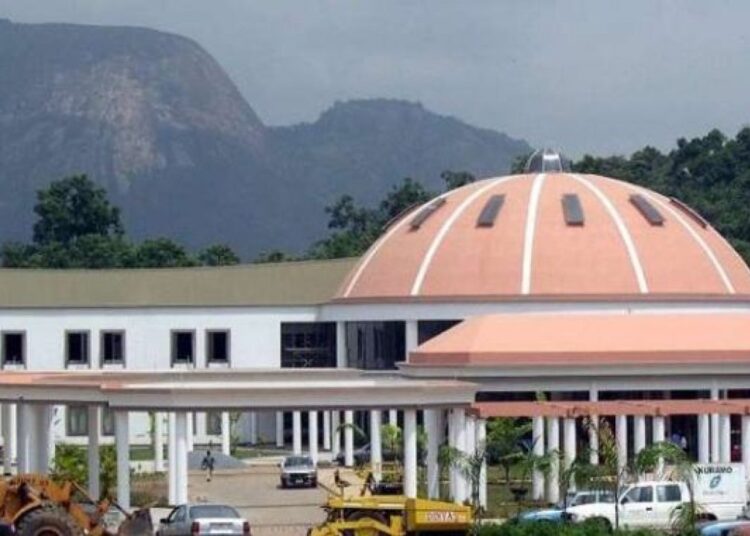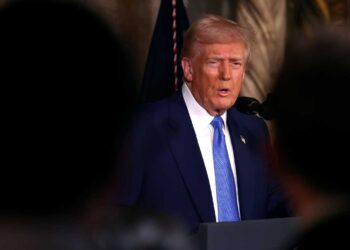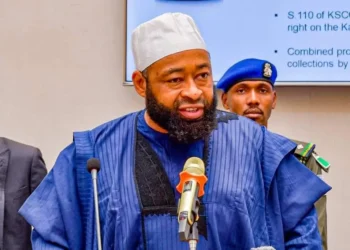A High-Stakes Meeting
In a significant development following the declaration of a state of emergency in Rivers State, Vice Admiral Ibok-Étè Ibas (retd.), the newly appointed sole administrator of the state, was spotted at the Presidential Villa on Wednesday, March 19, 2025. Ibas met with President Bola Tinubu behind closed doors, marking his first official engagement since his appointment. The meeting comes amid widespread controversy over Tinubu’s decision to suspend Governor Siminalayi Fubara, his deputy, and the state assembly members, citing constitutional breaches and security threats.
The Appointment: A Controversial Decision
President Tinubu announced the appointment of Vice Admiral Ibas during a nationwide broadcast on Tuesday, March 18, 2025. The decision followed the declaration of a state of emergency in Rivers State, which Tinubu justified as a necessary measure to address the escalating political crisis and security threats in the oil-rich state.
“In the circumstance, having soberly reflected on and evaluated the political situation in Rivers State, it has become inevitably compelling for me to invoke the provision of section 305 of the Constitution of the Federal Republic of Nigeria, 1999 as amended, to declare a state of emergency in Rivers State,” Tinubu stated. He suspended Governor Fubara, his deputy, Ngozi Odu, and all elected members of the Rivers State House of Assembly for an initial period of six months, appointing Ibas as the sole administrator to oversee the state’s affairs.
The Meeting: What’s on the Agenda?
Vice Admiral Ibas arrived at the Presidential Villa at approximately 12:48 pm local time, where he met with President Tinubu behind closed doors. While the details of their discussion remain undisclosed, the meeting is believed to have focused on the implementation of the state of emergency and the steps needed to restore stability in Rivers State.
Ibas, a retired naval officer with a distinguished career, brings a wealth of experience to his new role. His appointment has been met with mixed reactions, with some praising his leadership credentials and others criticizing the move as an overreach of executive power.
The Crisis in Rivers State: A Power Struggle Gone Awry
The declaration of a state of emergency follows months of political turmoil in Rivers State, fueled by a power struggle between Governor Siminalayi Fubara and his predecessor, Nyesom Wike, who currently serves as the Minister of the Federal Capital Territory. The crisis has led to protests, violence, and a breakdown of governance, with the state legislature rendered non-functional due to the demolition of its complex.
Tinubu cited constitutional breaches and security threats as the primary reasons for his decision, emphasizing the need for extraordinary measures to restore peace and order. “The Governor and Deputy Governor of Rivers State having failed to make a request to me as President to issue this proclamation as required by section 305(5) of the 1999 Constitution as amended, it has become inevitably compelling for me to act,” he said.
Mixed Reactions: A Nation Divided
Tinubu’s decision has sparked a wave of reactions across Nigeria, with opinions split along political lines. Supporters of the All Progressives Congress (APC) have defended the move, arguing that it was necessary to address the escalating crisis in Rivers State. They point to the breakdown of governance and the threat to national security as justification for the emergency measures.
On the other hand, opposition leaders and civil society groups have condemned the declaration, describing it as an attack on democracy and an overreach of executive power. The Peoples Democratic Party (PDP) has rejected the move, accusing Tinubu of attempting to impose an undemocratic rule in Rivers State.
The Role of the Sole Administrator: A Daunting Task
As the sole administrator of Rivers State, Vice Admiral Ibas faces the daunting task of restoring stability and addressing the root causes of the crisis. His appointment signals a shift toward a more centralized approach to governance, but it remains to be seen whether this will lead to lasting peace or further exacerbate tensions.
Ibas’s military background and experience in leadership positions make him a strong candidate for the role, but his success will depend on his ability to navigate the complex political landscape of Rivers State and win the trust of its people.
The Bigger Picture: Implications for Nigeria’s Democracy
The crisis in Rivers State and Tinubu’s declaration of a state of emergency raise critical questions about the future of democracy in Nigeria. The federal government’s intervention has reignited debates about the balance of power between the federal and state governments, the role of the National Assembly in such decisions, and the importance of adhering to constitutional principles.
For Rivers State, the immediate focus is on restoring stability and addressing the root causes of the crisis. However, the broader implications of Tinubu’s actions could have far-reaching consequences for Nigeria’s political landscape, particularly as the country prepares for the 2027 general elections.
Read also: “Bandits Strike Again in Ondo: Five Farmers Killed, Protesters Barricade Governor’s Office”
A Nation at a Crossroads
As Nigeria grapples with the fallout from the crisis in Rivers State, the need for dialogue, transparency, and adherence to constitutional principles has never been more urgent. The meeting between Vice Admiral Ibas and President Tinubu underscores the gravity of the situation and the challenges of finding a resolution that prioritizes the well-being of Rivers State residents and the preservation of Nigeria’s democratic values.
The coming days will be critical as Ibas takes charge of the state’s affairs and stakeholders work to restore peace and stability. For now, the nation watches and waits, hoping for a peaceful and constitutional resolution to the crisis.












